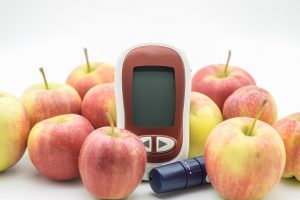
DOVER – Nearly 80,000 Delawareans have diabetes and an additional 84,600 people have been diagnosed with pre-diabetes. Diabetes is the leading cause of kidney failure, adult blindness, lower-limb amputations, heart disease and stroke. The disease requires extensive medical monitoring and costly, lifelong treatment. However, the health impacts of the disease can be managed through healthier lifestyle choices and self-management of medications so people can enjoy a higher quality of life.
More than 50 exhibitors and screeners will showcase health services, supplies and programs to Delawareans with diabetes at the 16th Annual Diabetes Wellness Expo, to be held Tuesday, Nov. 14, 2017, from 9:00 a.m. – 3:00 p.m. at the Dover Downs Conference Center. The free event, organized by the Delaware Diabetes Coalition (DDC), the Division of Public Health (DPH) and other partners, will bring together health care facilities, diabetes-related organizations and businesses to promote self-management and healthier lifestyles for people with diabetes and prediabetes.
The Expo includes educational presentations on: diabetes/prediabetes management, medication adherence, eating healthy, A1C control and the benefits of exercise. Blood sugar, blood pressure, foot care, eye exams and other screenings and tests are available. Free flu shots will also be provided at the Expo. A box lunch including a gourmet sandwich, fruit and beverage will be provided on a first come, first-served basis.
Overweight and obesity are major contributing factors for developing diabetes. In Delaware, 20.8 percent of adults who report being obese have been diagnosed with diabetes, compared with 3 percent of adults who report normal weights. People with pre-diabetes are at risk for developing type 2 (often called adult onset) diabetes, but they can significantly reduce that risk by increasing physical activity and eating a healthier diet. The National Diabetes Information Clearinghouse estimates that between 90 percent and 95 percent of people with diabetes have type 2.
The 2016 Delaware Behavioral Risk Factor Survey (BRFS) provides information about compliance with recommendations for people with diabetes:
- 57 percent say they check their blood glucose (sugar) levels one or more times per day. The recommended frequency is three times a day for most diabetic adults.
- 33 percent see their doctor four or more times a year. An additional 35 percent say they see their doctor two or three times a year.
- 75 percent of people with diabetes had an eye exam in which their pupils were dilated during the past year.
- 77 percent said a health professional had checked their feet for sores or irritations one or more times in the past year.
- Nearly half (47.2 percent) of all adults diagnosed with diabetes say they have taken a course or class in how to manage diabetes.
For more information, please call the Delaware Diabetes Coalition at 302-388-9728 or Delaware’s Division of Public Health’s Diabetes and Heart Disease Prevention and Control Program at 302-744-1020. You can also learn more about diabetes programs and resources at http://www.dhss.delaware.gov/dhss/dph/dpc/diabetes.html.
A person who is deaf, hard-of-hearing, deaf-blind or speech-disabled can call the DPH phone number above by using TTY services. Dial 7-1-1 or 800-232-5460 to type your conversation to a relay operator, who reads your conversation to a hearing person at DPH. The relay operator types the hearing person’s spoken words back to the TTY user. To learn more about TTY availability in Delaware, visit http://delawarerelay.com.
Delaware Health and Social Services is committed to improving the quality of the lives of Delaware’s citizens by promoting health and well-being, fostering self-sufficiency, and protecting vulnerable populations. DPH, a division of DHSS, urges Delawareans to make healthier choices with the 5-2-1 Almost None campaign: eat 5 or more fruits and vegetables each day, have no more than 2 hours of recreational screen time each day (includes TV, computer, gaming), get 1 or more hours of physical activity each day, and drink almost no sugary beverages.